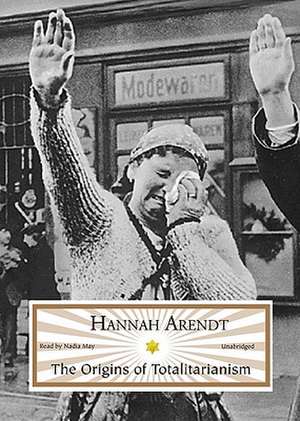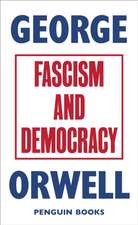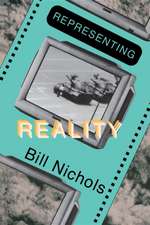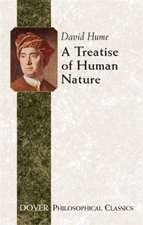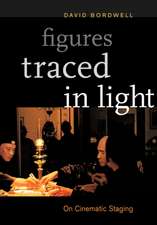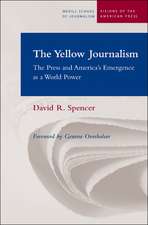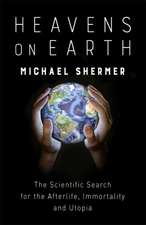The Origins of Totalitarianism
Autor Hannah Arendt Nadia Mayen Limba Engleză CD-Audio – 30 noi 2007
| Toate formatele și edițiile | Preț | Express |
|---|---|---|
| Paperback (2) | 59.03 lei 23-34 zile | +28.90 lei 7-13 zile |
| Penguin Books – 5 apr 2017 | 59.03 lei 23-34 zile | +28.90 lei 7-13 zile |
| Diana – 20 mar 1975 | 187.86 lei 38-44 zile | |
| Hardback (1) | 245.93 lei 38-44 zile | |
| Diana – 20 mar 1975 | 245.93 lei 38-44 zile |
Preț: 139.87 lei
Nou
Puncte Express: 210
Preț estimativ în valută:
26.76€ • 27.61$ • 22.33£
26.76€ • 27.61$ • 22.33£
Indisponibil temporar
Doresc să fiu notificat când acest titlu va fi disponibil:
Se trimite...
Preluare comenzi: 021 569.72.76
Specificații
ISBN-13: 9781433206658
ISBN-10: 143320665X
Pagini: 20
Dimensiuni: 166 x 150 x 49 mm
Greutate: 0.5 kg
Ediția:Unabridged
Editura: BLACKSTONE AUDIO BOOKS
ISBN-10: 143320665X
Pagini: 20
Dimensiuni: 166 x 150 x 49 mm
Greutate: 0.5 kg
Ediția:Unabridged
Editura: BLACKSTONE AUDIO BOOKS
Notă biografică
Hannah
Arendt
was
born
in
Hanover,
Germany,
in
1906,
and
received
her
doctorate
in
philosophy
from
the
University
of
Heidelberg.
In
1933,
she
was
briefly
imprisoned
by
the
Gestapo,
after
which
she
fled
Germany
for
Paris,
where
she
worked
on
behalf
of
Jewish
refugee
children.
In
1937,
she
was
stripped
of
her
German
citizenship,
and
in
1941
she
left
France
for
the
United
States.
Her
many
books
includeThe
Origins
of
Totalitarianism(1951),The
Human
Condition(1958)
andEichmann
in
Jerusalem(1963),
in
which
she
coined
the
famous
phrase
'the
banality
of
evil'.
She
died
in
1975.
Recenzii
A
kind
of
nonfiction
bookend
toNineteen
Eighty-Four
How could such a book speak so powerfully to our present moment? The short answer is that we, too, live in dark times, even if they are different and perhaps less dark, andOriginsraises a set of fundamental questions about how tyranny can arise and the dangerous forms of inhumanity to which it can lead
Perhaps Arendt's most profound legacy is in establishing that one has to consider oneself political as part of the human condition. What are your political acts, and what politics do they serve?
Her masterpiece ... Arendt's inquiry into the elements of totalitarian domination teaches us we must never let go of the fear of totalitarian government
A vivid account of the system of concentration and death camps that Arendt believed defined totalitarian rule
Remarkable for us, no doubt, is Arendt's conviction that only philosophy could have saved those millions of lives
Her greatest work is this 1951 classic ... More than any thinker it was Hannah Arendt who identified how those movements of ideas, racial theories, people and methods take place, showing how they fused with other forces - most notably European antisemitism - to shape and ultimately disfigure the twentieth century
How could such a book speak so powerfully to our present moment? The short answer is that we, too, live in dark times, even if they are different and perhaps less dark, andOriginsraises a set of fundamental questions about how tyranny can arise and the dangerous forms of inhumanity to which it can lead
Perhaps Arendt's most profound legacy is in establishing that one has to consider oneself political as part of the human condition. What are your political acts, and what politics do they serve?
Her masterpiece ... Arendt's inquiry into the elements of totalitarian domination teaches us we must never let go of the fear of totalitarian government
A vivid account of the system of concentration and death camps that Arendt believed defined totalitarian rule
Remarkable for us, no doubt, is Arendt's conviction that only philosophy could have saved those millions of lives
Her greatest work is this 1951 classic ... More than any thinker it was Hannah Arendt who identified how those movements of ideas, racial theories, people and methods take place, showing how they fused with other forces - most notably European antisemitism - to shape and ultimately disfigure the twentieth century
